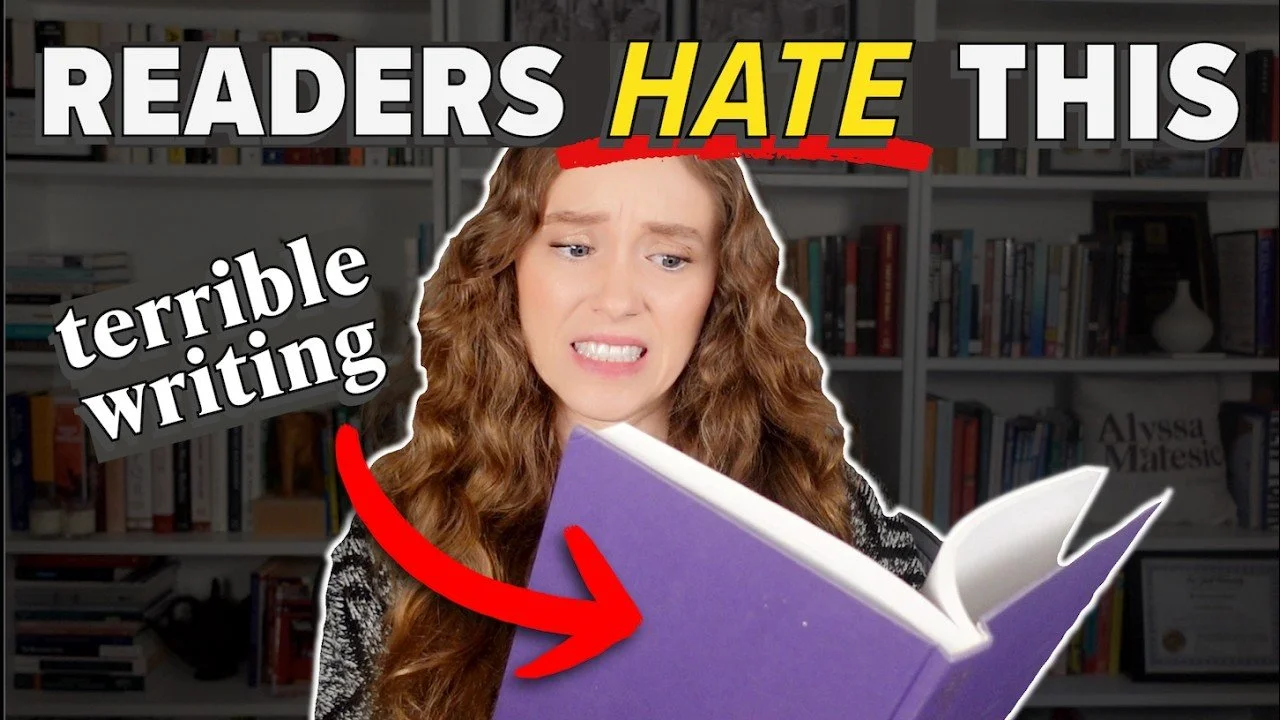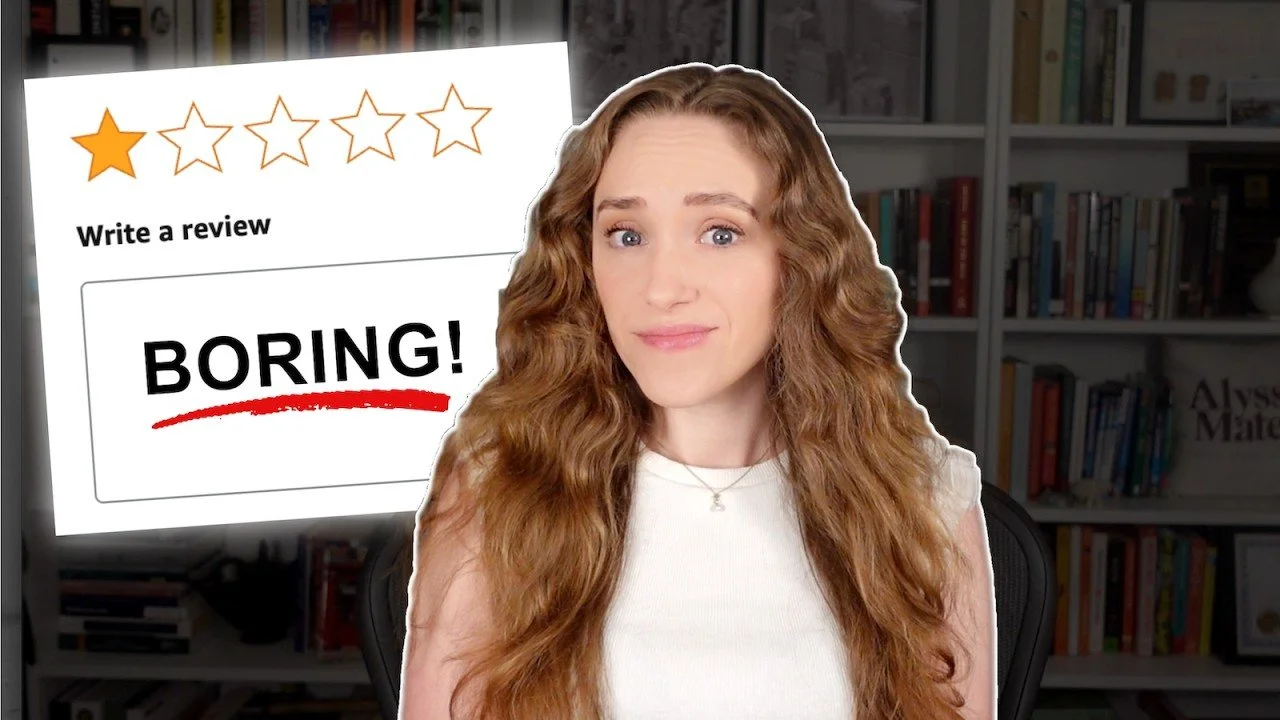The Best Story Tropes of All Time
HIT PLAY OR READ THE POST BELOW:
We often talk about tropes, cliches, and archetypes as if they are bad and something to be avoided at all costs. But the truth is that many stories rely on conventional techniques and storytelling strategies and use them quite effectively.
Whether it’s a novel or a film, most stories are going to include some conventional elements because they speak to some part of the human condition or psyche. Despite their familiarity, or maybe because of it, they resonate with readers time and time again.
In this article, I want to go over the best story tropes that actually are timeless and continue to be effective with audiences. I’ll go into why I think they work well and also give examples of recently published novels that use the story trope successfully.
I always recommend reading books that are currently being published if you yourself are hoping to be published one day, as it helps you get a sense for the market and readers’ appetites–so treat this article as a mini book recommendation list as well. Plus, it also always helps you strengthen your craft to read other writers’ works!
The Contained Setting
This story trope encompasses any story that primarily takes place in a specific, enclosed location. This could be a college campus, an island, or even a single room.
The reason I think a contained setting is one of the best story tropes of all time is because it immediately gives the story a sense of focus, and if the setting is well portrayed, it can give a cinematic and immersive type of experience. For example, in a suspense novel, a contained setting can give an eerie, claustrophobic feeling that amplifies the conflict and tension and puts the reader on edge. I always associate Agatha Christie's And Then There Were None as a perfect example of a contained setting.
More recently, The Guest List by Lucy Foley used this story trope as well. The Guest List is a thriller that takes place on an isolated island off the coast of Ireland, where all the characters have been brought to celebrate a wedding–and, of course, bad things happen.
An extreme example of a contained setting would be the novel Room by Emma Donoghue. This is a story where a boy and his mother are being held captive in a room, so that is exactly where the story takes place: within four walls.
The Will They, Won’t They
The next best story trope is a “will they, won't they” narrative. This is the classic romance setup where it's unclear if the couple is going to end up together or if they are going to break up. It takes us on a rollercoaster ride of their relationship, including the ups and the downs.
The reason this story trope works is because it immediately gives you a sense of narrative tension. The reader wants to keep reading because they want to see whether the couple ends up together or not. We want to understand how the friction between the couple will play out and if it blows up or gets resolved. It's a good way of hooking the reader through the end of the story, and it also speaks to our own human desire to form and nurture relationships and our craving for a happy ending.
A recent example of a “will they, won't they” story would be The Hating Game by Sally Thorne, which was also made into a film. This story also incorporates another trope that I won’t delve into, which is an enemies-to-lovers story. This is where two people who hate each other eventually become lovers–and this trope pairs well with the “will they, won't they” trope.
The Outsider Looking In
This story trope relates to any character, although it's typically a protagonist, who is entering and navigating a new environment. It may make them a bit uncomfortable and vulnerable–and we, as the readers, witness them in this new situation.
This could be someone who's entering a new school as the new kid, or someone moving to a new country, or even someone spending time in a wealthier social circle or a poorer social circle than usual.
The reason why this continues to be one of the best story tropes is because it speaks to the human experience of feeling like you just don't belong and haven't found your people. It can also convey that excitement of peeking into a new world that you've perhaps admired from afar. This trope also immediately gives you a strong character development arc, because we're watching the character learn new things, gain new perspectives, meet new people, and have meaningful experiences. All of this automatically makes the narrative and the character more engaging.
A recent example of an outsider looking in story would be in the novel Verity by Colleen Hoover. The premise of this story is that a struggling writer ends up working and living in the home of a best-selling novelist, and she's able to inhabit the world of this person who she has admired for so long.
The Unreliable Narrator
Now, you may roll your eyes at this story trope, but hear me out. You might think this is a tired and overused trope, especially because it has gained huge popularity after the success of the novel Gone Girl and has basically become a staple of the psychological suspense genre. But in my view, this trope does continue to work if executed well.
The reason I think the unreliable narrator continues to work, even though it is pretty prominent in the psychological thriller and domestic suspense space, is because it sets the reader up for a truly shocking twist if executed well. As readers, our default is to trust the narrator. So it destabilizes us when we no longer can, and then we become intrigued. We want to figure out who the narrator truly is, why they have been lying to us, what's actually going on with them, and what other secrets they're keeping.
I think it also speaks to our human fear of someone that we're close to, aka the narrator, turning out to not be who we thought they were. No one wants to be tricked, so it gives us conflict with the narrator.
A recent example of this is The Silent Patient by Alex Michaelides. I won’t go into how the trope works in this story specifically, because that would be giving away the twist. Go and read it for yourself!
Reckoning With the Past
These stories feature a protagonist who is trying to deal with something that is haunting them from their past. It could be a trauma, a family secret they are learning more about as an adult, or just them trying to get answers to something that feels like a loose thread, something in their backstory that's always itching in the back of their mind.
I think this is one of the best story tropes because everyone's past informs who they are today, and pretty much everyone has something from the past they've had to work through and deal with. These types of stories often deal with questions of identity as well as familial relationships, which are some of the richest topics to explore in fiction because they are so complex and touch on so many human emotions.
A recent example would be The Marsh King's Daughter by Karen Dionne. In this story, the protagonist's father was a survivalist and kept the protagonist and her mother captive. We see the protagonist two decades later when her father has escaped from prison and now she has to go find him. Over the course of the book, she has to deal with all of those unresolved tensions from the trauma of her childhood.
I hope this article helped you consider the story tropes you might be using in your own novel and recognize some of the qualities that make them effective. Learning about the best story tropes should help you realize that cliches and tropes are not necessarily bad to use in your story–you just have to use them correctly.
Thanks so much for reading, and happy writing!





